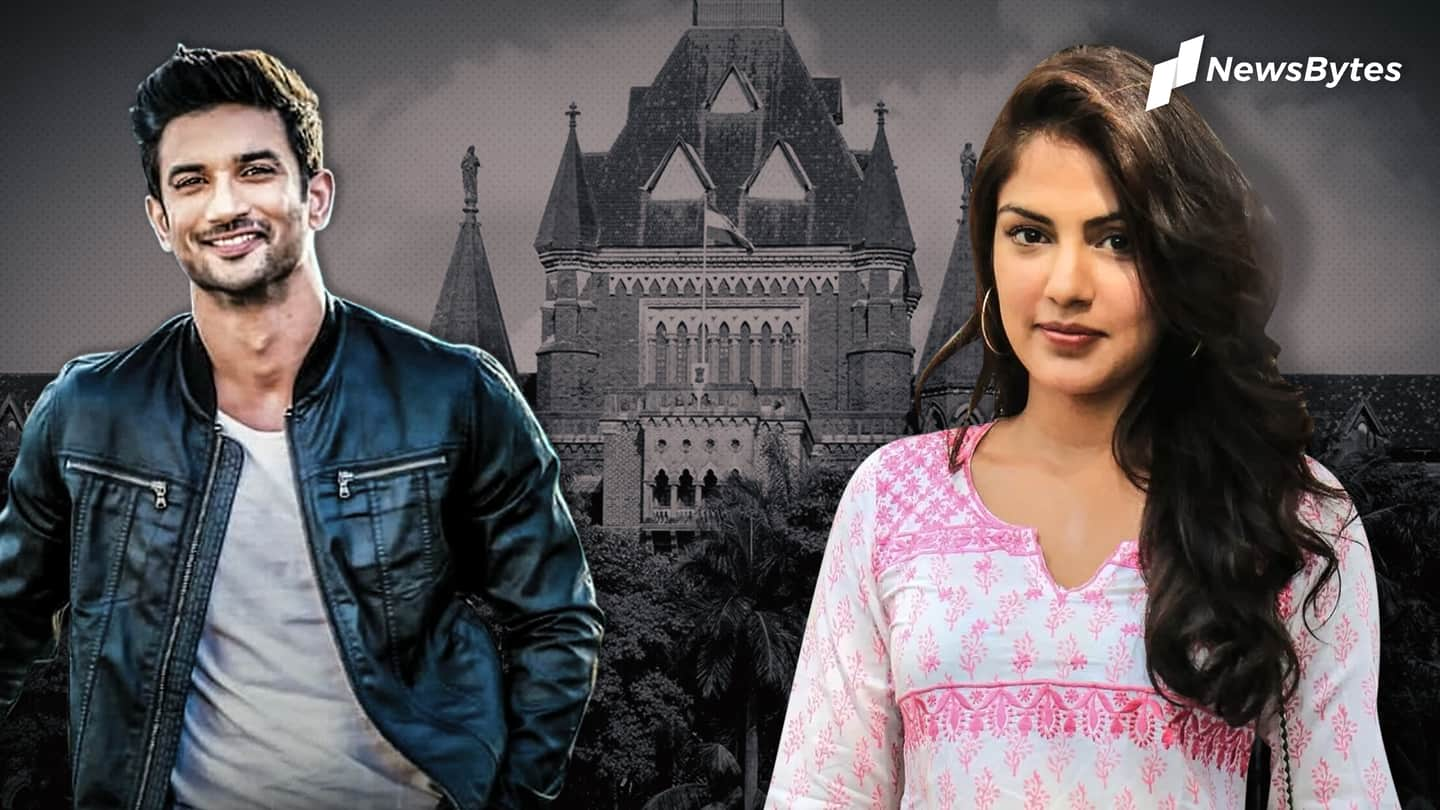
Republic, Times Now's reportage in SSR case 'contemptuous': Bombay HC
What's the story
In its 251-page-long verdict related to media trial in the Sushant Singh Rajput death case, the Bombay High Court on Monday observed that news channels Republic TV and Times Now ran a vicious campaign, donning the hats of "the investigator, the prosecutor as well as the judge."
A bench of Chief Justice Dipankar Datta and Justice Girish S Kulkarni said their reportage was "prima facie contemptuous."
Background
The SSR death case was clearly 2020's most-followed, reported story
In June last year, Rajput, a Bollywood actor, died by alleged suicide in Mumbai, triggering discussions about favoritism and nepotism in the industry. The case turned murkier after his girlfriend, Rhea Chakraborty, also an actor was accused of nefarious actions.
TV news channels relentlessly followed this story in a bid to gain TRPs. In their quest, they took journalism to a new low.
PILs
Irked by media trial, petitioners approached court
The media trial prompted ex-officers of Maharashtra, activists, lawyers, and NGOs to file PILs. During the hearing over six months, the HC noted that boundaries were crossed.
"When a case is under investigation and the issue is whether it's a homicide or a suicide and a channel is saying it is murder, is that investigative journalism?" the bench had asked Republic TV's representative Malvika Trivedi.
Observations
Both the channels tried to outsmart one another: HC
About the two channels, the HC said they behaved as if "during the pandemic, except they, all organs of the State were in slumber."
They attempted to outsmart one another and ran vicious campaigns, the HC noted. And in this race, the channels showed little care for other stakeholders and threw commands of CrPC "and all sense of propriety to the winds."
Findings
News channels wanted to shake public confidence about judiciary
The bench noted that even if news reports were meant to be "insinuations and aspersions against Mumbai Police and actress Rhea Chakraborty, they lack bonafides."
These reports intended to interfere and/or obstruct justice and also stir the public confidence in the efficiency of police and judiciary.
The media shouldn't publish an alleged confession of an accused and try to pass it off as evidence.
Quote
'The reportage of these channels had ingredients of criminal contempt'
"In our considered opinion, telecast of reports/discussions/debates/interviews by these TV channels on the death of the actor and events subsequent thereto, brought on record by the petitioners is, prima facie, contemptuous having ingredients of criminal contempt," said the bench.
Details
Press Council of India's guidelines applicable to electronic media: HC
While the court didn't take action against the channels, it hoped that they act responsibly in the future.
Noting that media trial interferes with the investigation of the police, HC said the guidelines of the Press Council of India for criminal reportage should also be extended to electronic media.
The media should observe restraint while discussing ongoing probes so as to not prejudice the rights of the accused/witness.
Quote
HC also wants channels to avoid reconstruction of crime scenes
"Reconstructing of crime scenes, interviews with potential witnesses, leaking sensitive and confidential information should be avoided. Investigative agencies are entitled to keep secrecy about the ongoing investigation and they are under no obligation to divulge information," the court observed.
Details
Our findings on media trial shouldn't affect criminal investigations: HC
Further, HC underlined that Mumbai Police can't be accused of any wrongdoing, as it referred to the August 2020 judgment of the Supreme Court wherein the case's investigation was handed over to the Central Bureau of Investigation.
The bench accepted a suggestion that agencies should appoint an officer for periodic media briefings and added that the recent observations aren't a "reflection of pending investigations."
Guidelines
Earlier, Press Council of India also reminded of 'journalistic conduct'
Notably, in August 2020, the Press Council of India also expressed its disappointment over the SSR case coverage, directing media houses to stick to its guidelines.
"The media should not narrate the story in a manner so as to induce the general public to believe in the complicity of the person indicted," the body, which governs print media's conduct, had said.